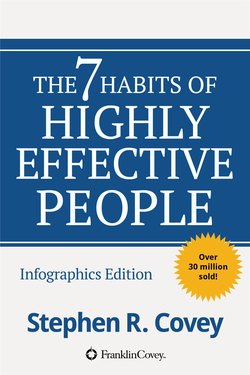Читать книгу The 7 Habits of Highly Effective People - Стивен Кови - Страница 52
На сайте Литреса книга снята с продажи.
ОглавлениеACT OR BE ACTED UPON
The difference between people who exercise initiative and those who don’t is literally the difference between night and day. I’m not talking about a 25 to 50 percent difference in effectiveness; I’m talking about a 5000-plus percent difference, particularly if they are smart, aware, and sensitive to others.
It takes initiative to create the P/PC Balance of effectiveness in your life. It takes initiative to develop the Seven Habits. As you study the other six habits, you will see that each depends on the development of your proactive muscles. Each puts the responsibility on you to act. If you wait to be acted upon, you will be acted upon. And growth and opportunity consequences attend either road.
• • •
At one time I worked with a group of people in the home improvement industry, representatives from twenty different organizations who met quarterly to share their numbers and problems in an uninhibited way.
This was during a time of heavy recession, and the negative impact on this particular industry was even heavier than on the economy in general. These people were fairly discouraged as we began.
The first day, our discussion question was “What’s happening to us? What’s the stimulus?” Many things were happening. The environmental pressures were powerful. There was widespread unemployment, and many of these people were laying off friends just to maintain the viability of their enterprises. By the end of the day, everyone was even more discouraged.
The second day, we addressed the question, “What’s going to happen in the future?” We studied environmental trends with the underlying reactive assumption that those things would create their future. By the end of the second day, we were even more depressed. Things were going to get worse before they got better, and everyone knew it.
So on the third day, we decided to focus on the proactive question, “What is our response? What are we going to do? How can we exercise initiative in this situation?” In the morning we talked about managing and reducing costs. In the afternoon we discussed increasing market share. We brainstormed both areas, then concentrated on several very practical, very doable things. A new spirit of excitement, hope, and proactive awareness concluded the meetings.
At the very end of the third day, we summarized the results of the conference in a three-part answer to the question, “How’s business?”
• • •
Now what would a reactive mind say to that? “Oh, come on. Face facts. You can only carry this positive thinking and self-psych approach so far. Sooner or later you have to face reality.”
But that’s the difference between positive thinking and proactivity. We did face reality. We faced the reality of the current circumstance and of future projections. But we also faced the reality that we had the power to choose a positive response to those circumstances and projections. Not facing reality would have been to accept the idea that what’s happening in our environment had to determine us.
Businesses, community groups, organizations of every kind—including families—can be proactive. They can combine the creativity and resourcefulness of proactive individuals to create a proactive culture within the organization. The organization does not have to be at the mercy of the environment; it can take the initiative to accomplish the shared values and purposes of the individuals involved.
